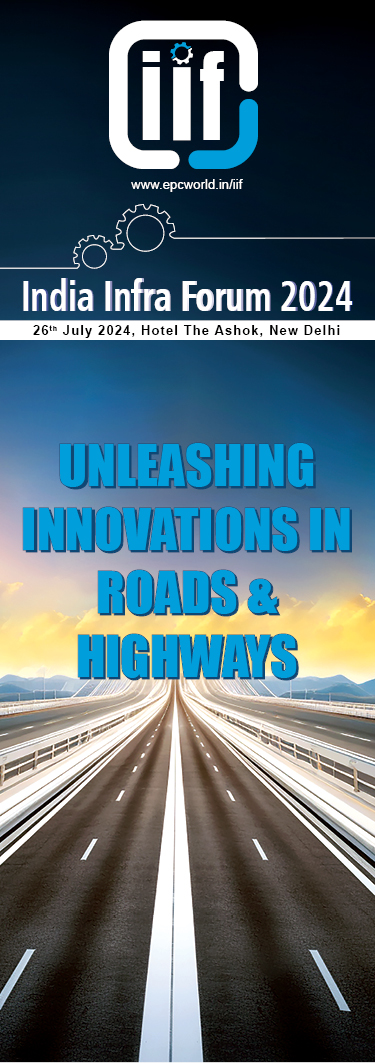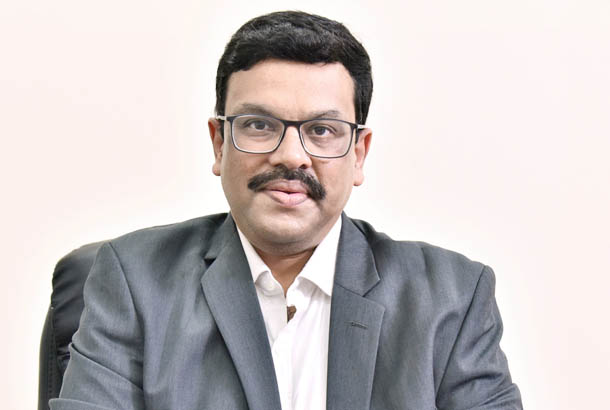We have an innovative business model that is transparent, scalable, flexible, and can seamlessly catalyse different and emerging technologies in a manner that incentivises all stakeholders, says Rajat Sud, Managing Director, Energy Efficiency Services
Covid-19 induced lockdown has battered almost all the industries; power sector, especially renewable energy sector is one of them. What is your outlook for the renewable energy sector in India?
India is on its way to achieve its renewable energy targets, with solar in particular becoming a leading source of power within the country. However, the increased share of renewables into the grid requires adjustments and increased investments in technology and the grid itself. There is immense potential for renewable to become more competitive whereby assets would be commodity. There will be a services led transition whereby needs of consumers would be at focus. Solar power offers an array of advantages. It has the potential to considerably reduce the operating cost of DISCOMs by substituting the conventional power need of the agricultural feeders, eventually solarising entire villages and with the right applications of storage, further solarising the grids.
Post trade restriction with China, how is 'Aatmanirbhar Bharat' for the renewable energy sector shaping up?
Aligning with our Prime Minister's vision of 'Aatmnirbhar Bharat', we are fully committed towards the creating a self-reliant India. We are encouraging Indian companies to bid and procure tenders floated by EESL. However, if a company complies with Indian government standards and requirements as furnished time to time, they are also eligible to be a part of an International Competitive bid. Our ecosystem of vendors is capable of meeting all the requirements of government of India for Atmanirbhar Bharat. This will have a positive long-term effect for the renewable industry.
How is the ongoing Pandemic affecting EESL's ongoing projects - installation of public charging stations, smart meters, procuring e-cars, LED distribution, street lighting, expansion of super-efficient air conditioners & decentralised solar power plants programmes?
EESL was functional throughout the lockdown even during the lockdown and our pace of implementation was marginally effected due to supply chain issues. However, with government easing the norms for unlocking, we continued working with the state governments. Now, as the economy bounces back and green shoots of recovery make themselves apparently, we have again begun the implementation of our projects on a mission mode. Recently, we have installed 1,000 smart meters in Andamans. In addition, we also signed an MoU with Goa to set up a ₹ 450-crore 100 MW decentralised solar convergence project, which is a first-of-its-kind. Our street light (over 1 crore) have remained functional throughout the lockdown.
What are the programmes conducted by EESL to spread awareness about your sustainable products which are new to the market such as smart meters, LED blubs, charging stations?
To create widespread awareness, we have implemented an action-oriented campaign 'I Led the Way' for inspiring people to adopt LED bulbs, with an emphasis on individual savings. For this, an 'I Led the Way' microsite was developed, which allowed citizens to pledge to join the movement and track collective progress. A national PR effort that announced the launch of the movement was also made and was supported by regional PR campaigns, as each new state of India joined the movement. A Twitter campaign was initiated that donated one LED bulb to SOS Villages for every three #ILEDTHEWAY mentions. National and regional press announcements on the total number of people who had joined the movement were also done to galvanize campaign momentum.
India has the need for more skilled workers to realize its renewable energy target of 450 GW by 2030. What are the skill enhancing programmes EESL conducts under 'Skill India Mission'?
We have several programmes through which we create skilling opportunities. Under our Atal Jyoti Yojana (AJAY), we are supporting the establishment of service centers, a mobile app for monitoring, etc. Creating direct and indirect employment for around 40,000 people in urban and rural areas, AJAY is also creating skilling opportunities in the field of solar lighting. The programme is designed for active involvement of local communities in the entire implementation process, which includes assembly, distribution and repair and maintenance of solar study lamps, by transfer of skills and knowledge of technology. Towards this goal, the programme is working to empower local communities in handling solar photovoltaic (PV) technology through partnerships with State Level Rural Livelihood Mission (SRLM) and NGOs. EESL has agreed to become a Strategic Partner of the WePOWER Network by the World Bank and has formed a committee of five members to lead this initiative in the organization. The objectives of WePOWER are to support workforce participation of women in energy projects and institutions, and promote normative change regarding women in Science, Technology, Engineering, and Mathematics (STEM) education.
The growth of e-vehicle market is India is hindered due to insufficient EV charging stations. What role is EESL playing in bridging the gap between e-vehicles and charging stations?
Availability of adequate charging infrastructure is one of the prerequisites for further accelerating the EV adoption in India by addressing the issue of range anxiety amongst the public. Setting up charging stations at various highways and cities will boost the interest of public commuting from one city to another, enabling a smooth and sustainable transition to a future-oriented mobility solution. We have signed MoUs with various government departments and urban local bodies(ULBs) such as Ahmedabad Municipal Corporation (AMC); The Greater Hyderabad Municipal Corporation (GHMC); The Commissioner and Director of Municipal Administration, Government of Telangana (CDMA); Chennai Metro Rail Corporation (CMRL); Jaipur Metro Rail Corporation (JMRL); New Delhi Municipal Council (NDMC); South Delhi Municipal Corporation (SDMC); Department of New and Renewable Energy, Government of Haryana; Noida Authority; Apollo Enterprises (Apollo Hospital); Maharashtra Rail Corporation (Maha-Metro); PWD Maharashtra and CSC e-Governance Services India for setting up public charging infrastructure across India. We have also signed an MoU with NHAI to install chargers every 25-km. We have installed close to 207 EV charging station across the country. If we talk about NCR, which needs more EVs given the pollution scenario, we have installed 105 EV charging stations in Delhi and 58 in Noida. However, these stations currently have an utilisation rate of around 15%, which can be bolstered further by creating awareness around the value proposition of EVs.
From commissioning energy efficiency projects to taking the products to the target audience it requires huge investment which is not forthcoming. How is EESL overcoming financial constraints?
We have an innovative business model that is transparent, scalable, flexible, and can seamlessly catalyse different and emerging technologies in a manner that incentivises all stakeholders. The transparency and flexibility of the business model obviates the need for public funds as an enabler, while delivering outcomes in a time-bound manner. It has been able to to unlock demand in sectors where none has existed before. EESL utilises the approach of bulk procurement, demand aggregation, and monetisation of savings, which makes adoption of energy efficient technology lucrative for the entire value chain, by bringing down upfront costs. An increase in the adoption of these energy efficient technologies then creates large scale demand and facilitates economies of scale, which lowers the manufacturing costs. EESL is also working on models to leverage commercial funds by creating bankable energy efficiency projects which are guaranteed by risk guarantee funds.
Now, with Pandemic receding and vaccine in sight, what would be your key priorities for the next financial year?
Being prepared for the pandemic waves is critical and EESL is tackling this through the RAISE programme which disinfects a broad range of pathogens in the recirculating air. As we move into the new decade, our utmost priority is to implement electric vehicles infrastructure in the country. We are continuously working with different state governments and ULBs to installed charging stations in the country. In addition, we also aim to reduce the burden on DISCOMs by solarising agricultural feeders. We will then optimise this priority and offer other services to the DISCOMs, which will include adding the provision of lighting, solar cookstoves, energy efficient pumps and anything else that villages will need to eventually power. We wish to make all energy utilisation renewable. The starting point are the agricultural solar feeders, which would enable considerable energy savings to the DISCOMs and reduce the burden of subsidy for the State while providing day time power for the farmers. They would provide at least 50% savings vis-a-vis what they'll otherwise incur for agriculture, which is what we are aiming for. This will all be done under the umbrella of our convergence initiative.
Lastly, please take us through one of the most memorable innovative energy efficiency projects you have executed so far?
All our projects are unique and provide energy efficiency solutions to our clients, who are majorly state governments. However, I feel our Street Light National Programme (SNLP) is one of the most successful projects implemented in the country. We have installed over 11 million smart LED streetlights since its inception 6 years ago, making it the world's largest street lighting programme. The whole process has helped mitigate 5.06 million tons of CO2 emissions and saved 7.35 billion kWh of energy per year. This programme has made over 1,500 ULB's safe, these smart and energy-efficient streetlights can enable further peak demand reduction, annual energy savings and reduction in emission levels. By delivering lighting in public places and on roads when needed, cities can optimise their operations and greatly save on both the financial and carbon cost of lighting.






